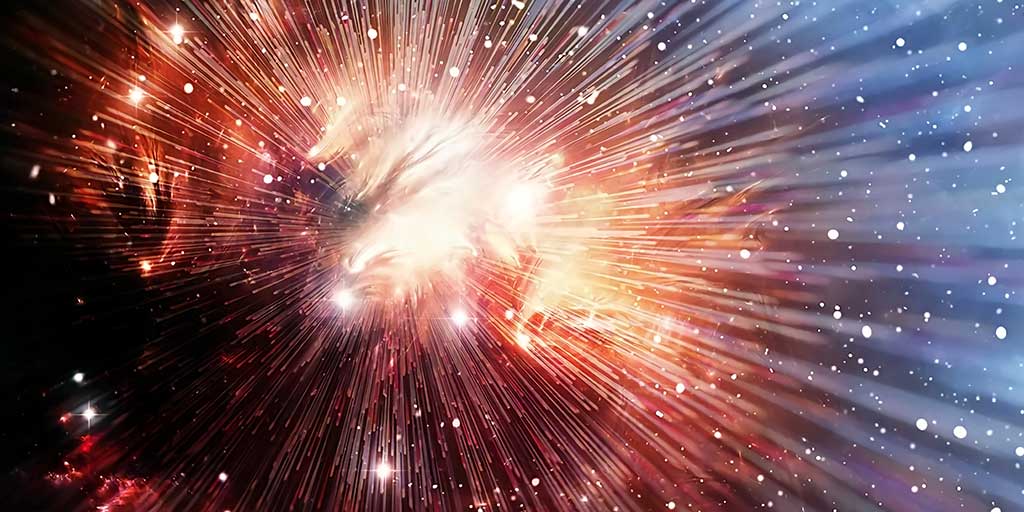Is God the Best Explanation for the Origin of the Universe?

I’m convinced that the hypothesis that God exists explains a wide range of the data of human experience. For example, God is the best explanation of the origin of the universe.
One of the most remarkable facts about modern physics is that, in contrast to scientists of bygone days, modern science believes that the universe is not eternal in the past but had a beginning a finite time ago. The controlling paradigm of modern astrophysics, which is the study of the universe as a whole, is that the universe began in an event called the “Big Bang” about 14 billion years ago.
And I think that most lay people don’t understand that according to this theory, not simply all matter and energy, but physical space and time themselves came into being at the moment of the big bang. So the big bang represents literally the origin of the universe out of nothing.
Now, the difficulty is, of course, that out of nothing, nothing comes. To say that the universe just popped into being uncaused, out of nothing, would be worse than magic. When a magician pulls a rabbit out of the hat at least you’ve got the magician, not to mention the hat. But on atheism you have to say that the universe just popped into being uncaused, out of absolutely nothing, which is surely absurd. So, it seems to me far more rational to say that there is a transcendent cause of the universe which brought it into existence.
It’s very important to understand that on the big bang model, the theory is not that the material universe is expanding into a preexisting empty space. Rather, according to this model, space and time themselves come into being at the big bang. And a very good way to visualize this is by imagining a balloon with buttons pasted onto the surface of the balloon. Now, the buttons are glued in place, so they don’t move relative to the surface of the balloon. But as you blow up the balloon, the buttons will get further and further and further apart because the surface of the balloon is expanding. Now the surface of the balloon is just like our three-dimensional space. As space expands, the galaxies get further and further and further apart.
Now this has the radical implication that as you trace the expansion back in time, they get closer and closer and closer together until, at some point in the finite past, the entire universe is contracted down to a single point before which it literally did not exist. So the controlling paradigm of contemporary cosmology is that the universe began to exist out of nothing about 14 billion years ago.
There has been a great deal of misinformation in popular press and television shows about quantum mechanics with regard to the origin of the universe. It’s said that in quantum mechanics you can get particles that fluctuate into existence out of the quantum vacuum, and that therefore it is true that something can come into being from nothing. And so you can get the universe coming into existence, without a cause, from nothing.
What these persons failed to explain is that the quantum vacuum in physics is not nothing. It is not what the layman thinks of as a vacuum. The quantum vacuum is a sea of energy, a sea of violent activity, governed by physical laws. It is most emphatically not nothing. So even if the early stages of the universe, during the first split second of its existence, is characterized or described by a quantum mechanical vacuum, that is not the origin of the universe out of nothing.
And the point is that that quantum vacuum state cannot have persisted to infinity past. It had a beginning. And therefore, we’re thrust into the question of why did the origin of the universe occur? What brought the universe into being?
Well, what it points to is a transcendent cause of the physical universe. And when you reflect on what properties such a cause would have to have, a number of very theologically significant attributes fall out. For example: This would have to be an uncaused being; it would have to be nonphysical and immaterial because it created all the matter in the universe; it would have to be non-temporal, that is to say timeless, because it created time as well as space; it would therefore have to be changeless; it would have to be enormously powerful in order to bring the universe into existence.
And, moreover, I would argue this being is also plausibly personal as well. Now why is that? Well, it’s the only way you can explain how to get a temporal effect with a beginning from a permanent timeless cause that has existed eternally. If the cause were just an impersonal set of mechanically operating conditions, then once the sufficient conditions are given, the effect has to be given as well. If the conditions are there permanently from eternity, the effect would have to be there permanently from eternity.
Take water, for example. The cause of water’s freezing is the being below zero degrees Celsius. If the temperature were below zero degrees from eternity past, the water would be frozen from eternity past. It would be impossible for the water to just begin to freeze a finite time ago. So how can you get a temporal effect with a beginning from a permanent eternal cause? I can think of only one answer to that, and that is if the cause is a personal agent, endowed with freedom of the will, who can therefore create a new effect without any prior determining conditions. For example, a man sitting from eternity could freely will to stand up. And so you would have a new effect arise from an eternal cause. And so we’re brought not simply to a transcendent cause of the universe, but to its personal creator.








